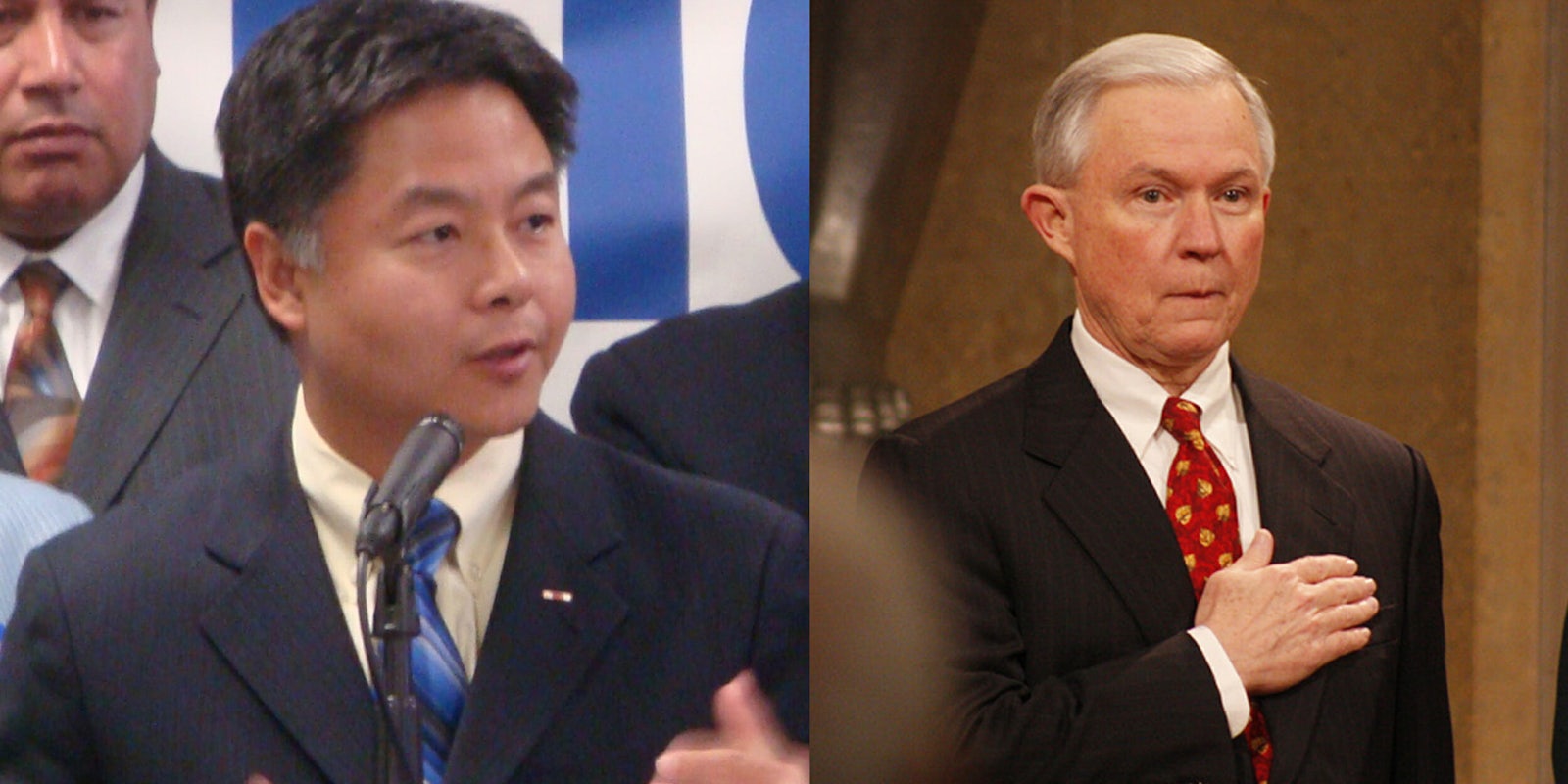A California congressman has written a letter to the Alabama State Bar (ASB) accusing Attorney General Jeff Sessions of possibly violating Alabama’s Rule of Professional Conduct for lawyers.
In the letter, Rep. Ted Lieu (D-Calif.) says Sessions appears to have violated several rules regarding his recusal from the investigations into Russian interference in the 2016 election, his role in President Donald Trump‘s firing of former FBI Director James Comey, false statements he made under oath at his confirmation hearing to become attorney general, and possible conflict-of-interest violations.
“It is deeply disturbing that Mr. Comey’s firing—in which Mr. Sessions played a role by crafting a cover letter for Deputy Attorney General Rosenstein’s memo urging Mr. Comey’s firing—appears to have been based, in part, on Mr. Comey’s handling of the ongoing FBI investigation into Russian meddling in the 2016 elections,” Lieu writes in the letter.
Lieu says the state’s rules of professional conduct “establish clear rules for attorneys who pursue government employment”—including that lawyers cannot participate in matters that they personally or substantially took part in while in private practice or nongovernmental employment.
In the letter, Lieu argues that “nongovernmental employment” includes Sessions being a major surrogate for President Donald Trump during the 2016 election.
“As a prominent Trump surrogate and senior adviser, as well as subsequent cabinet nominee, he personally and substantially participated in the campaign,” Lieu writes.
Sessions’ role in the firing of Comey also acts as a violation, Lieu argues in the letter—in particular, his “failure to abide by the terms of his recusal” from the investigation into Russian meddling in the 2016 election. By helping craft a cover letter for Comey’s recusal, Lieu argues, Sessions should “not have been involved pursuant to deferral conflict of interest laws” and Alabama State Bar rules because of his involvement in Trump’s campaign.
Sessions’ giving a false statement about his meetings with Russian Ambassador Sergey Kislyak when asked under oath during his confirmation hearing also violates the state’s rules for lawyers, Lieu argues, because it is a “false statement of a material fact.”
“For the Attorney General to only admit months later, after he was confirmed, that he did, in fact, have contacts with Russian officials should, for all intents and purposes, constitute a misrepresentation of material facts,” Lieu wrote.
Violations of ASB rules could result in a range of penalties, from probation to disbarment. Lieu’s office did not immediately respond to our request for clarification about the congressman’s goals in sending the letter.
The Department of Justice did not immediately respond to our request for comment.
Read all of Lieu’s letter here.


